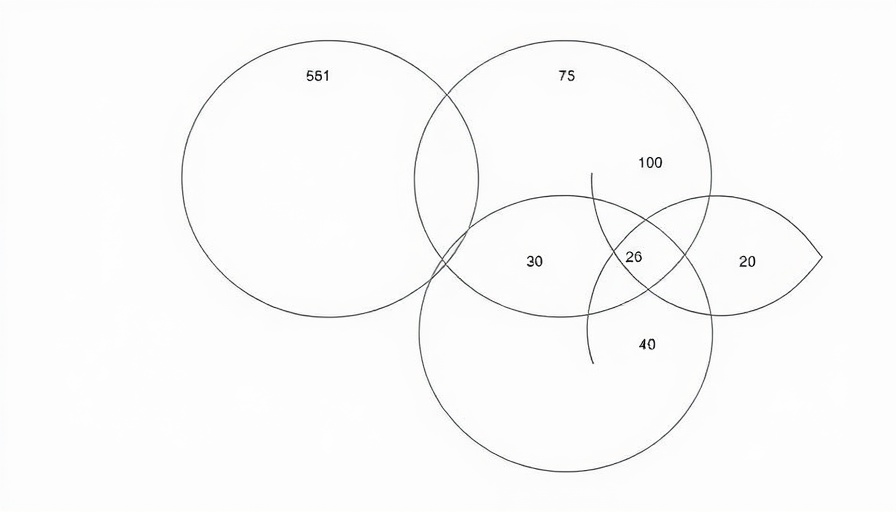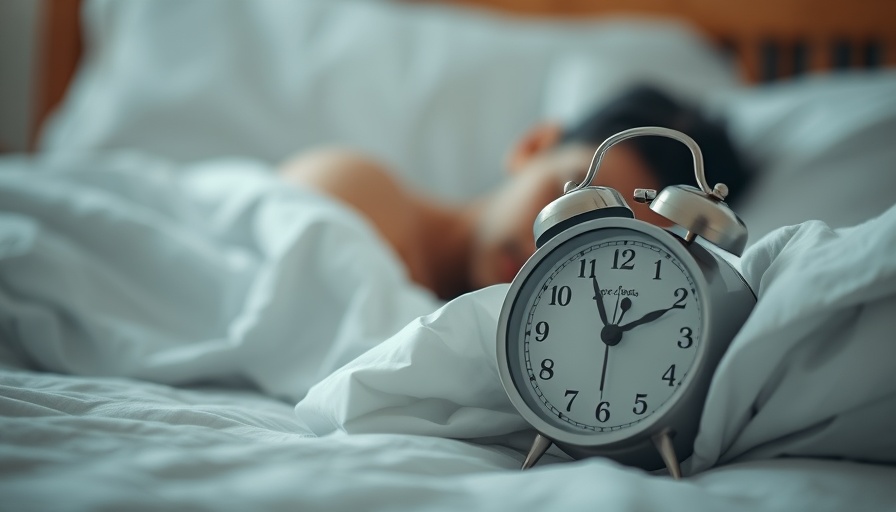
Unlocking Sleep: What Is Cognitive Shuffling?
If you've ever found yourself scrolling through social media late at night, stumbling upon intriguing videos that promise a quick route to peaceful slumber, chances are you've come across the term "cognitive shuffling." This technique, which has gained popularity on platforms such as TikTok and Instagram, boasts a simple yet engaging method to quiet the mind and facilitate sleep.
Understanding the Mechanism Behind Cognitive Shuffling
At its core, cognitive shuffling is about engaging the mind with a sequence of random thoughts to draw focus away from worries and anxieties that can interrupt a restful night. The step-by-step process suggests picking a random word (for instance, "cake"), brainstorming words that start with its initial letter (C), and visualizing each one—like "cat," "carrot," or "calendar." As you work through these words letter by letter, the goal is to shift your attention, making the mind less chaotic and more tranquil.
A Dive into Its Scientific Roots
The concept of cognitive shuffling was popularized by Canadian researcher Luc P. Beaudoin over a decade ago, exploring how this creative sequence of thoughts can ease the transition into sleep. In Beaudoin's research, he emphasizes that successful sleepers display dream-like, disordered thoughts that often stray into pleasant imagery, contrasting starkly with the habits of those who struggle with insomnia—who tend to fixate on daily stresses and noise in their environment.
Why Cognitive Shuffling Works: The Psychology of Sleep
Research suggests that cognitive shuffling helps distract the mind from the worries that plague those who find sleep elusive. In this method, individuals break the cycle of restless thoughts by embracing a more relaxed approach—engaging in light mental imagery that isn’t necessarily connected. This approach not only promotes relaxation but also encourages a sense of playfulness, which can ease the anxiety surrounding sleep.
Taking Action: How to Implement Cognitive Shuffling Tonight
If you're curious to try cognitive shuffling for yourself, start tonight. Choose a word that resonates with you, and allow your imagination to wander. Picture each associated word, and let go of any urge to link them together. By practicing cognitive shuffling regularly, you may notice a gradual improvement in your ability to enter dreamland more effortlessly.
Real-Life Experiences: Practical Insights from Those Who’ve Tried It
Many people have shared positive experiences with cognitive shuffling, highlighting the ease it brings upon falling asleep. Sarah, a 32-year-old artist, noted how focusing on whimsical thoughts helped her drift off faster than counting sheep ever did. Sharing personal stories like these underscores that while cognitive shuffling isn't a one-size-fits-all solution, it is a valuable tool in a broader arsenal for those grappling with sleep disorders.
Broader Benefits of Stress Relief and Sleep Hygiene
Aside from cognitive shuffling, embracing other sleep hygiene practices can further enhance your recovery and sleep quality. These can include establishing a consistent sleep schedule, minimizing screen time before bed, and practicing relaxation techniques like meditation or gentle yoga. Combining these approaches can provide a holistic pathway to reclaiming your nights.
Conclusion: Your Path to Restful Nights
As you explore various methods to improve your sleep, consider integrating cognitive shuffling into your routine. The goal is to create a mind that is free of worries and full of delightful imagery, paving the way for peaceful sleep. Try this playful technique tonight, and discover how it reshapes your nighttime journey.
For readers seeking actionable steps toward better sleep, it’s time to take the plunge: try cognitive shuffling tonight! Experiment with this engaging method and experience the potential of drifting into dreamland sooner than you thought possible.
 Add Row
Add Row  Add
Add 




Write A Comment